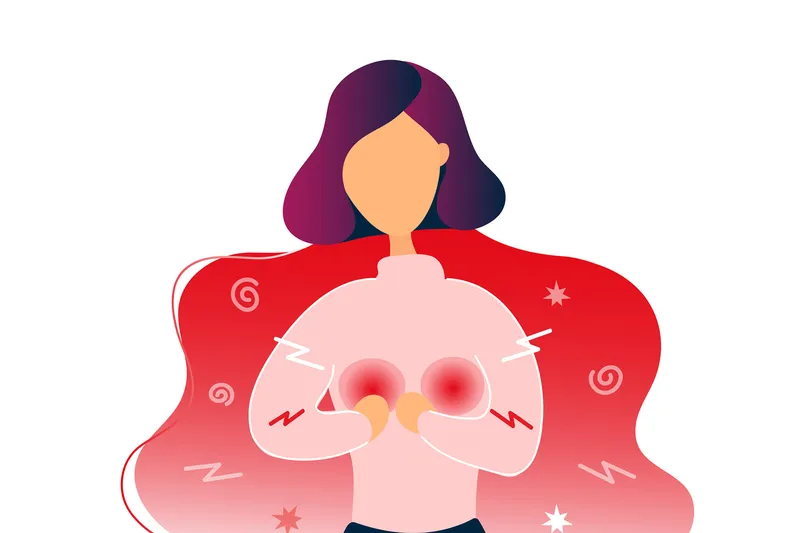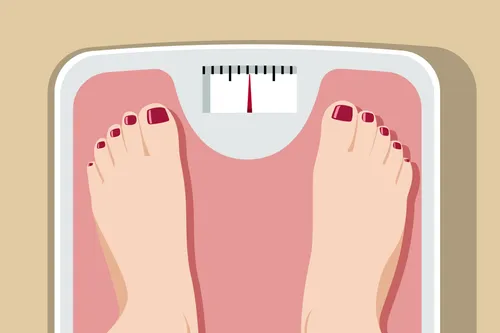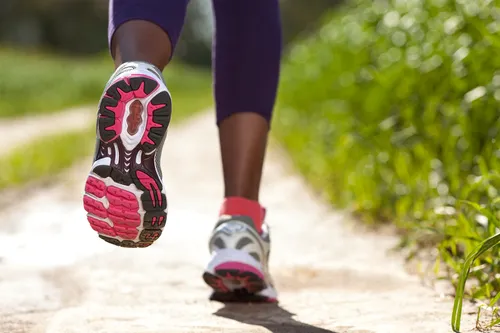Other symptoms might include:
Why Are My Nipples Itchy?
Your nipples, and the surrounding skin of your chest, can itch for plenty of reasons.
This itching might seem more intense at certain times:
- during your period
- post-workout
- after a shower
- throughout pregnancy
Occasional itching usually isn’t anything to feel concerned about, especially if you don’t notice any inflamed or peeling skin. Just as other parts of your body might feel itchy from time to time, your nipples can get itchy, too — especially if you have dry skin or a sensitivity to a certain chemical.
Persistent nipple itching, on the other hand, might have a more serious cause, such as eczema, yeast infection of the breast, or mastitis.
In some rare cases, itchiness in your nipples could be an early sign of breast cancer.
Paget’s disease of the breast, a type of breast cancer that specifically affects the nipple, can cause itchiness, though it often only affects one side of your chest.
People of any sex can develop Paget’s disease, but it typically affects people assigned female at birth.
This type of cancer isn’t common: It’s only responsible for about 1 to 3 percent of breast cancer cases. That said, people with Paget’s disease also often have another type of breast cancer, typically ductal carcinoma in situ (DCIS) or invasive ductal carcinoma.
Paget’s disease symptoms can mimic atopic dermatitis or eczema symptoms. You might notice:
- a nipple that appears inverted or flat
- inflammation, tingling , or burning
- a lump in your breast
- bloody or yellow nipple discharge
- thickening, flaking, or scaly skin around your nipple
If you’ve noticed any of these signs, it’s best to connect with a healthcare professional. They can offer guidance on next steps toward getting the right diagnosis and treatment.
Treatment for Paget’s disease and other types of breast cancer include:
- chemotherapy
- radiation
- surgical removal of any tumors, a portion of the breast, or the entire breast
It never hurts to reach out to a healthcare professional if you’ve noticed any changes in the texture or typical feeling of your breast, chest, or nipples. Itching, warmth, nipple retraction, and discharge can all be early signs of cancer.
If you’re pregnant, you might wonder whether you should worry about that new and unusual itching in your nipples.
Often, though, it’s just another side effect of pregnancy.
Pregnancy-related changes in hormones like estrogen and progesterone may leave you feeling itchier than usual, for one.
Keep in mind, too, that your breasts typically grow during pregnancy, which means that your skin will stretch. As your skin stretches, you might notice itching, tingling, and burning, particularly in sensitive areas like your nipples and breasts. Your skin may also seem drier, or even flaky.
Other possible causes of itchy nipples during pregnancy include:
- Eczema. Common during pregnancy, this skin condition usually involves dry and cracked patches of skin. Skin may appear red, darker than your skin tone, or inflamed.
- Prurigo. Your immune system’s response to pregnancy-related changes, this condition can also cause small, itchy bumps on your chest and elsewhere on your body.
- Pruritic urticarial papules and plaques of pregnancy (PUPPP). Along with itching, PUPPP can also cause small bumps or hives on your stomach, chest, backside, and thighs.
A few tips to get relief:
- Consider swapping out your bra for a looser-fitting one. Whenever possible, stick with cotton and natural fibers to promote better airflow.
- Slip a cool cloth inside your bra or top. Try keeping a stash in the refrigerator so you don’t have to deal with dripping fabric.
- Choose fragrance-free detergents and soaps, or products specially designed for sensitive skin.
- Try a moisturizing lotion. Here, too, opt for fragrance-free products with no additives. Olive oil, cocoa butter, or shea butter can work well, too.
Those hormonal changes that lead to itchy nipples in pregnancy? If you have menstrual periods, you’ll experience similar changes as part of your monthly cycle.
Changing hormone levels can leave your skin more sensitive, so you might feel itchier than usual as your period approaches and begins — even if you don’t change anything about your usual routine.
This hormone-related sensitivity, which can include dryness, inflammation, and small bumps or pimples, is also fairly common just before, during, and after menopause.
Your nipples might also itch due to changes in your breast size, which can happen as a natural part of your menstrual cycle. Bras or shirts in your typical size might temporarily become too tight, which can lead to chafing, irritation, and itching.
While you may not be able to prevent this itching entirely, you can get some relief by:
- keeping your skin moisturized with gentle, fragrance-free lotion
- trying an anti-itch topical medication, like hydrocortisone, which you can purchase over the counter (OTC)
- avoiding triggers, like strongly scented soaps or detergents
- temporarily switching to tops and undergarments in a slightly larger size
A few other possible causes of itchy nipples include:
Dermatitis
You might also notice itchy nipples if you have dermatitis. This umbrella term refers to various types of skin irritation, including eczema.
Both atopic and contact dermatitis can cause itchy nipples.
- Atopic dermatitis. This is a common form of eczema that doesn’t always have a clear cause. Along with itching, you’ll likely also notice some inflammation, rash, or peeling skin. This itching and irritation can affect your nipples and chest, but it generally appears on other parts of your body, particularly your knees and elbows.
- Contact dermatitis. This refers to skin irritation caused by a specific trigger. Triggers might include a product you’re allergic to, a toxic or harsh chemical or other substance, or even excess amounts of soap and water on sensitive skin. Your nipples are pretty sensitive, so they might itch even if the skin elsewhere on your body doesn’t.
Atopic dermatitis can cause significant irritation and itching, so you’ll generally want to explore options for managing your symptoms with a clinician.
Treating contact dermatitis might involve:
- taking warm (not hot) showers of 5 to 10 minutes and gently patting your skin dry afterward
- applying anti-itch cream or moisturizing lotion right after showing and patting dry
- choosing natural, breathable fibers for tops and undergarments
- changing clothing that becomes sweaty as soon as possible
- avoiding harsh soaps, perfumes, or body washes
- choosing a moisturizing soap
- wearing supportive undergarments that don’t rub against your nipples while exercising
Yeast infection
You might think of yeast infections as a vaginal health concern, but they can also develop in other warm and moist areas of your body, including your breasts.
Key symptoms of breast yeast infections, or breast thrush, include:
- a raised, shiny rash on your nipples or chest skin
- cracking and bleeding in your nipples
- itching, burning, and tingling nipples
- deep or shooting pain in your nipples or chest, particularly after nursing or pumping
You might also have a higher chance of developing breast thrush if you’re currently taking antibiotics.
Rinsing and patting your chest dry after nursing or sweating, especially in warm or humid weather, can help lower your chances of developing breast thrush.
Yeast infections typically require treatment with over-the-counter or prescription antifungal medications. Connecting with your care team can help you get confirmation of a yeast infection before you start using antifungals.
There’s a lot of debate about breast thrush in people who are nursing. Some research suggests this condition is overdiagnosed and that its symptoms may more often relate to nursing itself. If your symptoms don’t improve with antifungal treatment, support from a lactation consultant may be a better option for getting long-term relief.
Mastitis
Mastitis, a breast tissue infection, can also cause breast and nipple itching. This condition, which typically develops when you’re nursing, can happen when a milk duct becomes blocked or you’re exposed to bacteria.
Other symptoms might include:
- breast tenderness or warmth
- swelling in one breast
- burning or pain when nursing
- discharge from your nipple
If you have mastitis, a clinician can prescribe antibiotics to treat the infection. It’s important to take all of the medication as prescribed to help prevent the infection from coming back.
Taking OTC pain relievers, getting plenty of rest, and staying hydrated can also help ease your symptoms.
These tips can help prevent mastitis in the future:
- alternating the nipple you first offer during feedings
- alternating the position you use to nurse your baby
- allowing each side to fully drain of milk before offering the other side
A lactation consultant can offer more guidance and support with common nursing difficulties, including latching problems and pain while nursing.
If itching in your nipples doesn’t go away after a few days or seems to get worse as time goes on, consider making an appointment with a healthcare professional
It’s best to reach out right away if you experience:
- bloody, yellow, or brown discharge
- an inverted nipple
- persistent pain in your nipples
- any changes in the texture of nipple or breast skin
- thickening of breast tissue
- pain and other symptoms of mastitis while nursing
Itchy nipples can feel pretty uncomfortable, but it can help to remember that your nipples are pretty sensitive. Usually, mild itching doesn’t pose any serious cause for concern, and home remedies and OTC treatments can generally provide some relief.
A doctor or clinician can help identify the cause of more persistent itching or pain in your nipples or chest, plus offer more guidance on options for treatment.
Last medically reviewed on December 17, 2021
Why Do My Nipples Itch?

Itchy nipples are sheer misery. Not only are they awkward to scratch during the daytime, but at nighttime, they make sleeping nearly impossible. If you’re clawing at your chest at 3 a.m. and wondering what in the world is going on with your nipples, the good news is that, in most cases, it’s nothing serious. In rare cases, itchy nipples is a sign of something more serious – and we’ll get to that – but like I said, it’s rare. So first let’s talk about what’s more likely to be going on.
Atopic Dermatitis
Atopic dermatitis, also known as eczema, is the most common cause of itchy nipples. With this condition, itching is almost always present and can be severe. The itching may start even before you’re able to see a rash. The rash can include small blisters with oozing or crusting. If you keep scratching, you could open the skin to infections or create thickened areas from constant inflammation and irritation.
Atopic dermatitis can appear in women and men of all ages. Since it’s thought to be due to a hypersensitivity reaction, you may be more prone to develop it if you have a personal or family history of allergies, asthma, or hay fever.
Environmental triggers that can prompt atopic dermatitis to flare up can include:
- Dry skin
- Prolonged contact with water
- Dyes or scents added to skin products
- Cleaning products
- Stress
Doctors usually diagnose atopic dermatitis by doing a physical exam and asking about your health history. If needed, they can also do a skin biopsy to rule out other causes.
The majority of atopic dermatitis remedies are treatments that you apply directly to the skin, like steroid creams or ointments. It is important to use an ointment and not lotion in this area, as lotions can sometimes contain drying agents that might make the symptoms worse.
Topical ointments that might help include:
When your itching is severe or there is a known allergic trigger, antihistamine pills can help. Hydrocortisone cream is also an option.
There are also self-care and preventative strategies that can ease your symptoms. Your best strategy for getting rid of atopic dermatitis is to avoid triggers, but you should also do what you can to keep moisture in your skin. For instance, don’t use drying soaps, and don’t take long, hot baths. Once out of the bath or shower, apply an ointment to the area.
As I mentioned, there is a more serious cause of itchy nipples, and it’s important to know the signs:
Paget’s Disease
Paget’s disease is a rare form of breast cancer that can involve both the nipple and the areola (the colored area that encircles the raised nipple). One of the first symptoms of Paget’s disease can be an itching or burning sensation of the nipple or areola.
In Paget’s disease, the itching is often accompanied by a crusty rash. The scaly rash does not get better with topical creams. More advanced cancers will form open sores and might have nipple discharge. Paget’s is most often found in just one breast and is typically found in women between the ages of 50 and 60.
Doctors diagnose Paget’s disease with a breast exam and a mammogram. They might also do a biopsy of the nipple. Any breast lumps would be biopsied as well. The treatment for Paget’s disease is breast surgery, either removing the whole breast (known as mastectomy) or removing just the diseased part of the breast.
If you have any of the symptoms of Paget’s, contact your doctor for an evaluation.
In general, though, itchy nipples are also not something you need to run to the ER for at the first twinge of discomfort. Try the topical ointments and antihistamines mentioned above, and if the symptoms don’t get better or a rash develops, then follow up with your doctor to get things thoroughly checked out.
WebMD Blog
© 2020 WebMD, LLC. All rights reserved.
Blog Topics:
- Breast Health
About the Author
Heather Rupe, DO, is a board-certified OB/GYN in private practice in Franklin, TN, and serves as the vice chief of staff at Williamson Medical Center. She is the co-author of The Pregnancy Companion: A Faith-Filled Guide for Your Journey to Motherhood and The Baby Companion: A Faith-Filled Guide for Your Journey through Baby’s First Year.
More from the Women’s Health Blog

Can a Vagina Be Too Big?
Heather Rupe, DO April 13, 2021
Childbirth, weight gain, hormonal changes, and more can have an effect on the contours of the vagina over time, but is this a problem?

Gaining Weight in Your 40s? Tips From a GYN
Heather Rupe, DO January 29, 2021
If what you used to do to keep your weight in check isn’t working anymore, there’s a reason. Learn how to stay healthy as you age.
Latest Blog Posts on WebMD

Starting Right Now, I’ll Do MORE
Eddie Applegate February 2, 2023
Well, it’s that time of year again, everyone. It’s the new year, and everyone comes up with resolutions. I’m going to do this more or do this less. Yeah, I don’t play .

How I Exercise with Eczema
Mercedes Matz February 1, 2023
As someone who was active as a kid, I know the importance of moving your body every single day. My mother and father were both physically fit .






